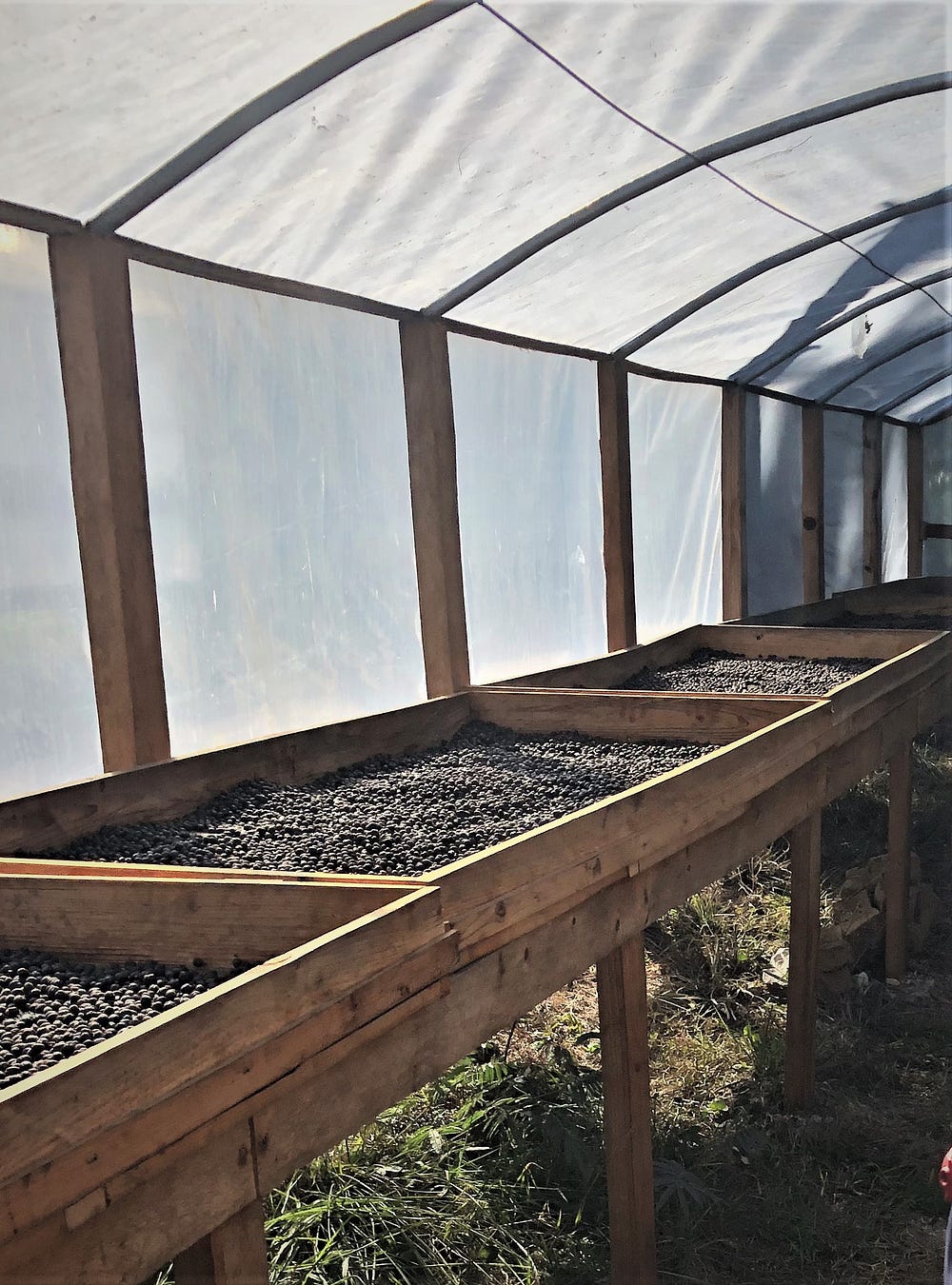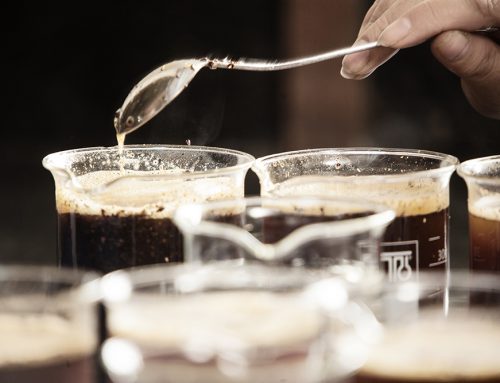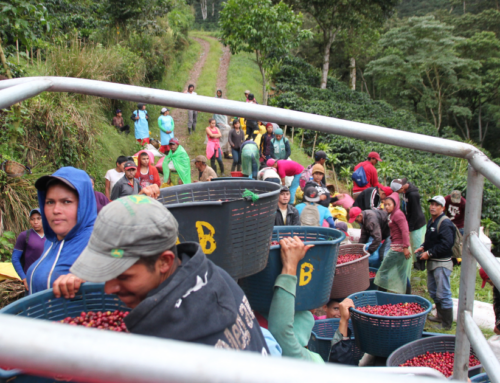Honduras is a small Central American country with its share of problems. The World Bank estimates that in rural areas 20% of Hondurans earn less than $1.90 per day. Country-wide, roads are sub-optimal; many Honduras coffee farms are accessible only via dirt roads that snake up along mountainsides. Despite these factors, entrepreneurial specialty coffee producers in Honduras are working toward higher quality, experimenting with new processing techniques and growing high-profile varietals. The objective: kick down the door of the specialty coffee market, build a reputation as a specialty coffee origin and earn the money that comes with it.
Honduras is the world’s 6th largest producer of Arabica coffee, supplying the globe with 700 million pounds of coffee every year. However, the Honduras coffee trade is dominated by intermediaries who do not necessarily care about quality or paying farmers fairly.

Molinos de Honduras Comayagua Mill
Molinos de Honduras
Genuine Origin’s sources all of its Honduran coffees through Molinos de Honduras (Molinos), its sister company in Honduras. With offices and mills in Comayagua, El Paraiso, Santa Rosa, Vallecillos, San Nicolas, Pena Blanca and Subirana, Molinos has its finger on the pulse of Honduras coffee.

Map of Honduras Coffee Producing Regions
Honduras has traditionally been a country of intermediaries. Intermediaries make life easier for exporters, but generally give less money to farmers. In 2014 Molinos made a strategic decision to work directly with farmers and to disintermediate. In five years Molinos went from sourcing 5% direct to sourcing 80% direct, 15% coop and 5% from selected intermediaries that are aligned with Molinos purchasing strategy. At last count, Molinos was working directly with over 8000 small producers! It’s much harder to work with so many farmers, but it brings Molinos face to face with its suppliers. Working directly with producers also allows Molinos to help farmers produce higher quality coffees and — most importantly — helps farmers get paid more.
Country-Wide Production
Honduras coffee production has improved and increased country-wide, but the last two years have been challenging. Intense price pressure has pushed many farmers away from coffee production; some have abandoned their farms altogether. Due to new immigration pressures trickling down from the U.S., there has been a shortage of migrant coffee pickers from neighboring countries like Nicaragua. The effect has meant that cherries dry out on coffee trees. The decrease in production has had tremendous market implications, namely a drop-in production and quality.
Molinos expects lower production to continue into 2021. Additionally, they believe the country’s internal pricing will make sourcing high quality coffee more competitive and more difficult. So, Molinos earlier strategic shift to work directly with producers should give them a sourcing advantage over other exporters.
View from the Specialty Coffee Farm
The reality of today’s conditions for the farmers in Honduras is worrisome. There are a lot of market factors complicating things for farmers. Low prices and a lack of pickers result in coffee drying on trees and changing climate conditions makes coffee cherries fall from the trees. Transportation is another problem area. Most Honduran coffee farms are high up in the mountains with sub-optimal roads.
However, Honduras is not without its success stories. Angel Ramos began planting coffee 20 years ago using a hectare of land he bought from his mother. His parents and grandparents taught him how to work a coffee field.
Angel began selling coffee to Molinos during crop 2014–2015. Since that time he has seen his profits increase. He now owns six hectares of land and is planning to purchase two more.
Other farmers such as Jose Noel Mendez benefit from working with the Volcafe Way and the Molinos solar dryer program. Jose farms, La Casa and La Chorrera, have his solar drier & de-pulping system which allow him to deliver fully milled coffee and get paid more.
Jose Noel has been able to increase productivity and profitability thanks in part to agronomical and technical assistance from the Volcafe Way.

Sergio Romero of CAFICO on his Gesha farm
Growing More Specialty Coffee in Honduras
Honduras has the potential to become a specialty coffee powerhouse, but it also has a lot of challenges. Molinos sees processes like wet milling and drying as areas for improvement. In the regions of Comayagua and el Paraiso ideal climatic conditions and output show the potential to produce large volumes of high-quality specialty coffee. However, processing capacity remains a hurdle. Farmers in these burgeoning regions need to catch up in terms of organization compared to producers in the Western Region (such as Copan, Intibuca, La Paz, Lempira and Ocotepeque). These up-and-coming departments have not yet begun to form cooperatives, which would provide access to centralized milling, drying, technical assistance and commercial opportunities.
Molinos is making a big effort to attend to these traditional producers, to help them develop and become a sustainable supply chain of specialty coffee on a large scale.
Trends in the Honduras Specialty Coffee Market

Solar dryers drying naturals at Finca Santa Elena
Globally, coffee buyers are becoming more and more sophisticated. Roasters are demanding high-end coffees and innovations to push flavor. They want their coffees to be consistently delicious and traceable. Delivering the same high-quality coffee year after year is one of the keys to positioning yourself in the specialty market.
Fortunately, Honduras has high-quality coffees and good volumes…plus potential for more! However, to be able to source coffees you must be able to keep trace-ability intact. In the past five years Molinos has focused on working directly with farmers and cutting out intermediaries. They have been surprised by the qualities they have been able to source ranging from community lots, to estate farms and even single producers.
Molinos is seeing more and more producers and cooperatives experimenting with naturals and honey processed coffees. They have also seen some mid-sized producers experimenting with anaerobic and yeast-based processes. Growers are also expanding their varietals to include Gesha, Pacamara and Parainema. These processes are in the development stage and won’t be available in “large” volumes right away…but it’s coming. Farmers are innovating; they want access to more selective markets and, hopefully, better prices.

Drying Guama Danta community lots
Genuine Origin & 2020 Coffee Quality
Some of Genuine Origin’s first coffees were Honduran community lots and micro-lots. The Pacavita and Guama Danta lots have demonstrated consistent flavor, quality and volume. These Honduras specialty coffees have become the workhorses of roasteries across the U.S. Being in constant communication with the producers and coops involved in Pacavita and Guama Danta has enabled Molinos to deliver consistently excellent coffees. Molinos is also excited about its new partnership with the International Women’s Coffee Alliance (IWCA). Together they will deliver a 100% women-farmer produced coffee to Genuine Origin.
Honduras has several regions with unique micro-climates and growing conditions that yield distinctive coffee characteristics. For example, Honduras’s Western regions (Copan, Intibucá, Ocotepeque) are well-balanced, usually have a good body and are really fruity and juicy coffees. In the middle of the country where Comayagua and Francisco Morazán are, specialty coffees usually come with a bit more acidity and have more citric and exciting floral notes.
Due to many of the challenges mentioned above, this year the quality control team at Molinos had to work harder to achieve the signature Pacavita and Guama Danta flavor profiles. After much cupping and blending they achieved the qualities Genuine Origin demanded.
Genuine Origin’s team of Q-graders have rated the 2020 Guama Danta as floral and fruity, with chocolate notes, medium body with a slightly higher acidity. The fresh Pacavita Organic offers chocolate, caramel and cane sugar flavors with an excellent balance between body and acidity.
Molinos is still developing the IWCA lot. The idea is to keep innovating and bringing exciting coffees to Genuine Origin and its roaster community, elevating the standing of the origin and continuing to promote Honduras specialty coffee.






